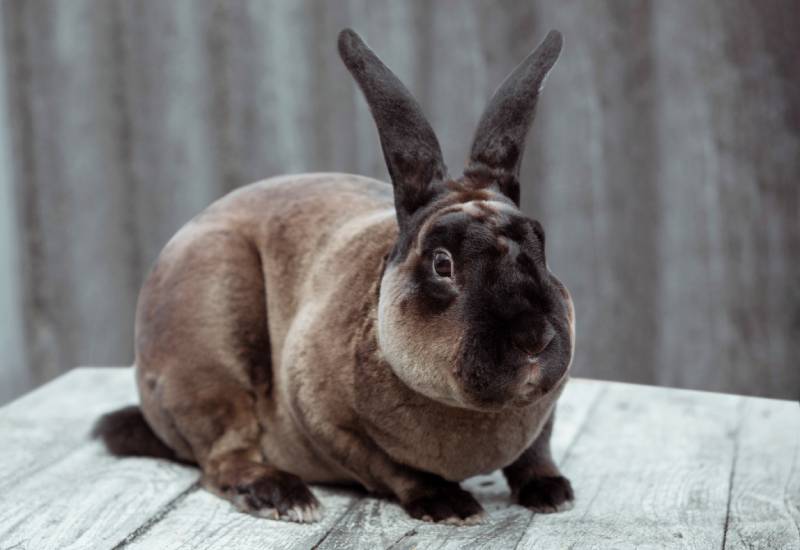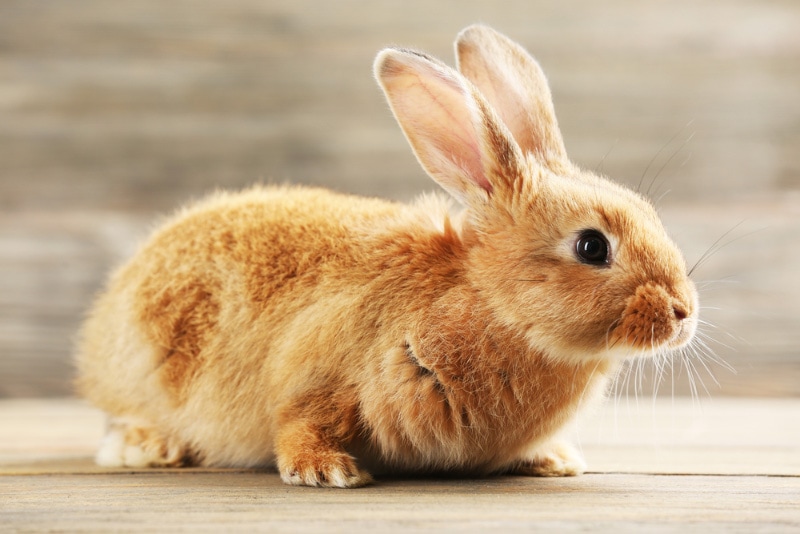
You’re sitting in your room alone with your rabbit and hear a sound that could only be described as a fart. You look down at your rabbit in surprise. Was that your darling bunny, or did someone break in to pass gas? Do rabbits fart? Is that even possible? You will be surprised to know that they do fart! Read on to learn more.
Can Rabbits Fart?
Rabbits most definitely fart, but it’s honestly not every day that you’ll hear it. Passing gas is a way to expel a build-up of gasses in your rabbit’s gut, naturally produced as food is digested and broken down.
If you hear your bunny “toot” occasionally, it’s not a cause for concern. What you’ll want to be watching for are signs of diarrhea accompanying your rabbit’s farts or even signs that they aren’t passing gas, which can be associated with GI stasis.
The Rabbit Gastrointestinal Tract
Rabbits have a gastrointestinal tract that is relatively similar to that of horses. In both types of animals, they are unable to vomit or burp. As such, anything they ingest has to be able to pass through their gut. These animals are hind-gut fermenters.
Rabbits (and horses) have a cecum, an organ in the lower portion of their GI tract. This organ helps digest the fibrous material these animals eat as the main portion of their diets.
Unlike cows, rabbits have a gastrointestinal tract initially shaped like that of humans, dogs, and cats, so they can’t break down everything in their guts. They’ll need high-quality roughage rather than the tougher material that cows can subsist on.
The cecum contains many microbes and gut bacteria that help break down the grass and hay your rabbit consumes. Some nutrients, such as volatile fatty acids, can be absorbed through the cecum, but many must be passed into the stool.
After the cecum has done its work in the evening, your bunny passes special fecal pellets packed densely with nutrients. Your bunny then eats those fecal pellets to get all those nutrients.

Can Your Rabbit Die if They Don’t Fart?
If your rabbit can’t pass gas, it could have a deadly condition known as GI stasis. If you’re not seeing your rabbit eat and pass stool, it must be examined by a veterinarian immediately.
Potential signs of GI stasis include:
There are a couple of home remedies for gassy rabbits, but GI stasis may need intensive therapy, so you must contact your veterinarian.
Your veterinarian may need to provide food and fluid therapy to help your rabbit’s gut process foods appropriately. They will often use pain medication to control your rabbit’s discomfort. Other medications, such as metoclopramide, help promote intestinal motility.
Do Rabbits Release a Smell?
Your rabbit could undoubtedly pass a smelly fart, but it’s more likely that smells are coming from one of their various scent glands, most notably the ones at their rear that produce a smelly, waxy substance. Your healthy rabbit will generally keep this area clean, but rabbits that are ill or overweight might need to be up to cleaning themselves.
Other scent glands can produce pheromones. Their glands near their chin produce pheromones to mark their territory and objects—even you!
Conclusion
If you hear a farting sound come from your bunny, don’t panic. It can be a perfectly natural way to release gas building up in their gut. If you’re not seeing your rabbit eat or pass stool, you need to have them examined by a vet to ensure they don’t have a health condition like GI stasis, which can be very dangerous for your rabbit.
Featured Image Credit: Oleksandr Lytvynenko, Shutterstock




